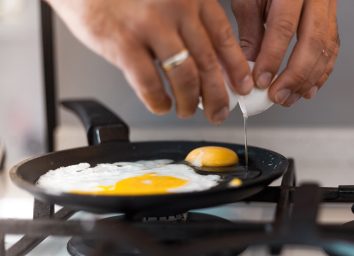What Happens To Your Body When You Stop Eating Carbs
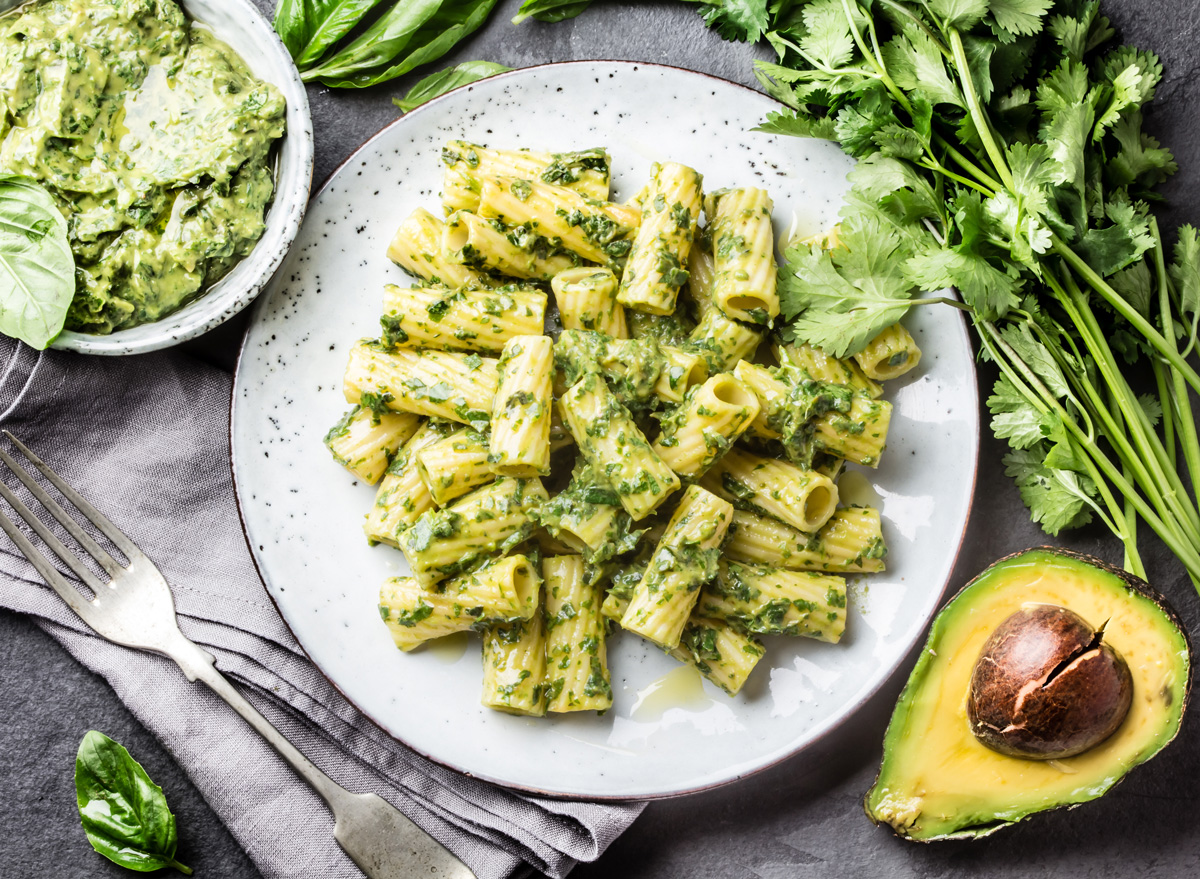
Recently, carbohydrates have been in the spotlight—and not for a good reason. Thanks to the popularity of the ketogenic "keto" diet, many have cut back on their carb intake to lose weight or improve their overall health. There are some benefits of eliminating carbs from your diet, but as with any drastic change, it's important to know what's happening to your body by severely limiting a food group. Here, we spoke with nutrition experts to better understand carbohydrates and to investigate how to reduce our intake safely. Read on to learn what happens when you stop eating carbs, and for more healthy tips, check out our list of 21 Best Healthy Cooking Hacks of All Time.
The critical difference between complex and simple carbs.
The biggest question for health enthusiasts lately has been to carb or not to carb—but it's not a straightforward answer, according to Allison Curtis, MS, RDN, the director of integrative nutrition at STRATA Integrated Wellness and Spa. How come? Not all carbs are created equal, and not all are bad news for our bodies. That's why it's vital to understand the difference between complex and simple carbs when we discuss our diets.
Curtis says complex carbs are nutritional superstars like these:
- Fruits like apples, oranges, berries, and melons.
- Vegetables like sweet potatoes, butternut squash, and green peas.
- Beans like black, pinto, kidney, garbanzo, and soybeans.
- Whole grains like brown rice, whole wheat, oats, and ancient grains such as quinoa, barley, and farro.
On the other end of the spectrum are simple carbs that come from original carb sources but have been heavily processed and refined. Curtis says this means the nutrients were taken out, and thus, you're only left with empty calories. When you think of simple carbs, consider white bread, sugary cereals, white rice, cakes, candy, and sodas.
So, the goal is to significantly reduce your simple carbs while eating a healthy amount of complex carbs for a balanced diet. When you do this, here's how your body responds:
You might experience 'hanger' and fatigue in the beginning.

You feel frazzled, tired, and as if you could eat an entire Thanksgiving dinner at lightning speed. "Hanger" is what happens at the intersection of hunger and anger, and it's something we have all experience occasionally. When you have the symptoms of hanger — irritability, starvation, and so on—it's because your blood glucose level has dropped too low, according to Lance Parker, the director of nutrition at Performix House. This causes your adrenal glands to trigger the release of two stress hormones—epinephrine and cortisol—which heightens our natural "fight or flight" state.
And while you can survive without any carbs whatsoever, Parker says your body has to make up for it somewhere else, which can have a lasting impact down the line.
"Being depleted of carbohydrates, your body will turn to proteins to help with energy production, which then starts to deplete your body's proteins that are also needed for muscle growth and repair," he says.
That's why you shouldn't go completely carb-free, and instead, focus on the healthy, complex carbs to help fuel your body. Remember, even in a strict keto diet, you're still allowed 20 to 30 carbs a day, and those that have a super-high fiber intake don't count toward the total tally. Get started with these The 9 Best Complex Carbs for Weight Loss.
Your cravings and tastebuds change.

Fun fact you probably didn't know: we have thousands of taste buds, and they are replaced every two weeks. So if you give a low simple carb diet a chance for two weeks, Curtis says you can shift your cravings, and thus, not crave those sugary treats you once did.
In addition to taste buds, our diet heavily influences the bacteria, also called microbiota, that lives in our gut.
"These microbes have an even shorter lifecycle than our taste buds and turn over multiple times daily," she says. "A diet high in junk food will encourage the growth of microbes that crave these unhealthy foods and crowd out the healthy bacteria. Research shows that these 'bad' bacteria can manipulate our eating behavior for their own gain."
In other words: they can make us remain on an endless cycle of eating bad, simple carbs. But, you can actually change those desires in a handful of days, as you fulfill your stomach with healthier options, allowing good bacteria to outnumber the bad guys. Try incorporating some of these 14 Probiotic Foods for a Healthy Gut.
You will consume fewer calories overall.
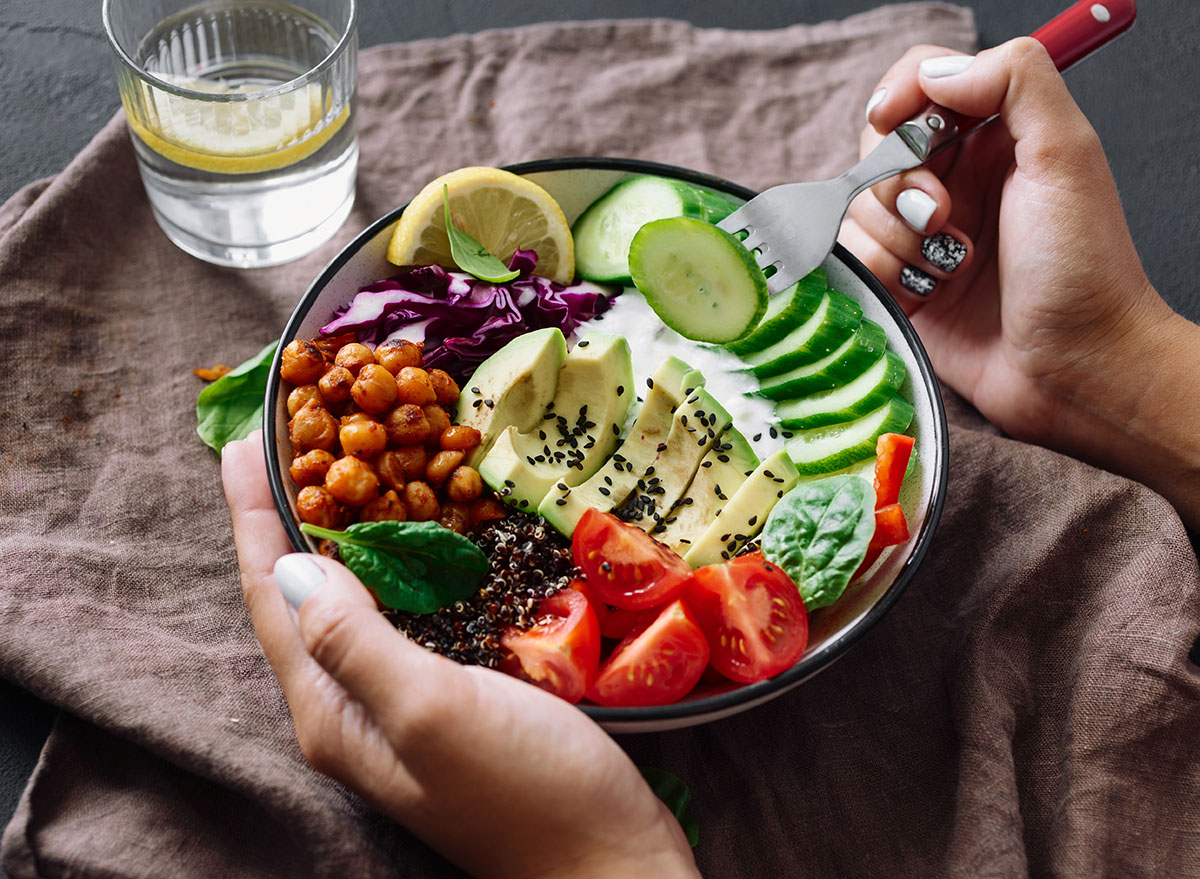
Depending on how strict you want to be with your carb intake, you could reap the keto diet's benefits. As nutritionist and author Dr. Josh Axe, DNM, CNS, DC explains, the high-fat ketogenic diet sends your body into a metabolic state called 'nutritional ketosis', where your body burns fat for energy rather than carbs. Over time, your digestive system will adjust, and you'll naturally be less hungry.
"If you focus on eating a clean, low-carb diet that includes plenty of veggies and high-fiber foods, there's a good chance you'll consume fewer calories overall, which promotes fat loss," he says.
If you're on the hunt for some low-carb meal ideas, check out our list of 63+ Best Healthy Keto Recipes to Keep You In Ketosis.
Your sex hormones will become better balanced.
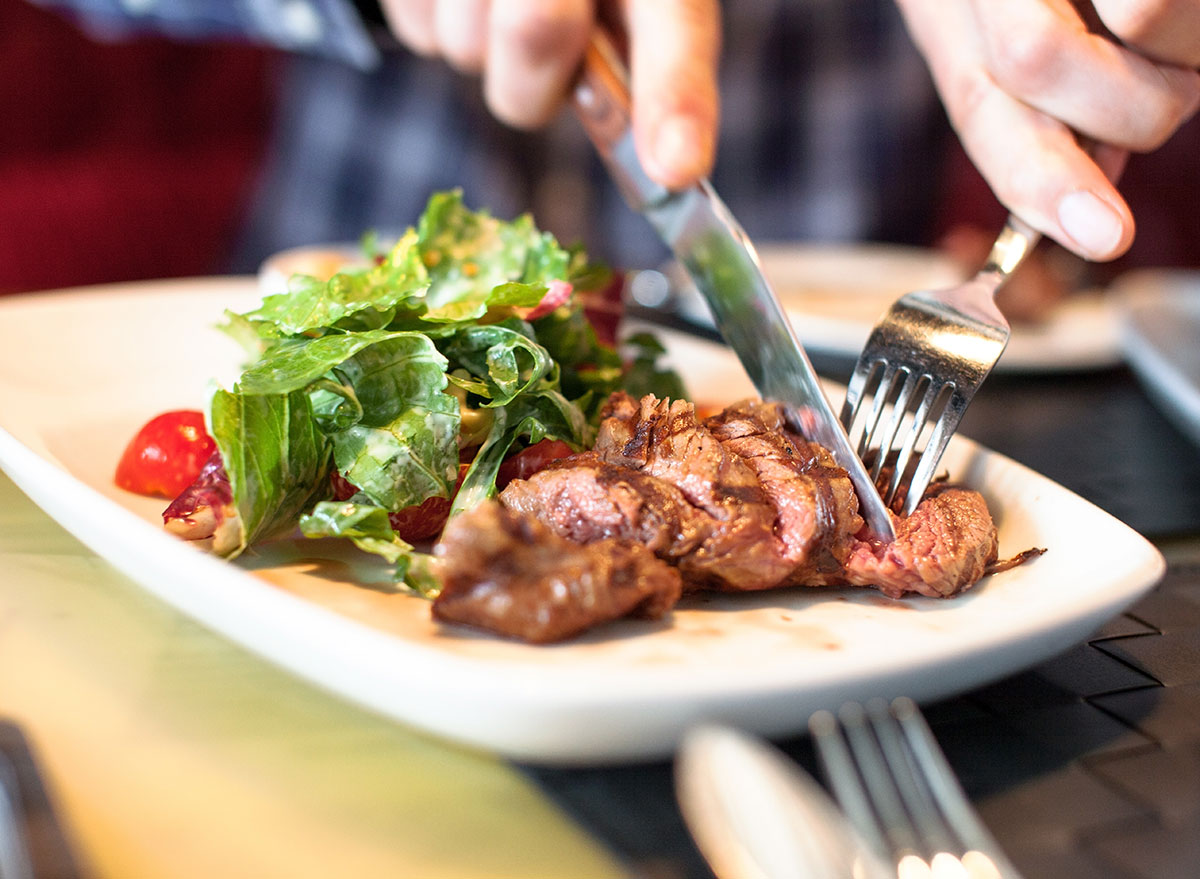
Nutritional therapy practitioner and wellness specialist for Mindbody, Lauren McAlister, puts it bluntly when she says the food you eat impacts your hormones. Period. When you fill your plate (and your tummy) with simple carbs, you create a blood-sugar rollercoaster that's stressful for our body. First, it fills us up. But we process is so quick, it leaves us hungry again in no time. Then cravings kick in. And the process repeats itself. This state of anxiety diminishes our body's ability to produce sex hormones like estrogen, progesterone, and testosterone as efficiently as it should, McAlister shares. This can leave us feeling out of control and fidgety.
On the other hand, when we eat regular meals full of high-quality protein, fat, fiber, and complex carbs, McAlister says the opposite happens: our hormones regulate.
"Hormonal conditions like low testosterone, Polycystic Ovarian Syndrome (PCOS), and infertility can be greatly improved," she says. "Instead of riding the highs and lows of blood sugar, your body can focus on healing and balancing."
You will improve your metabolic markers.

When you're on a low carb diet, your body naturally begins to release less insulin, which is an energy-storing hormone. It's often ignited when we eat high-sugar foods, plowing through our bloodstream and causing a slew of issues, especially if you're someone who has diabetes. As Dr. Axe explains, cutting the bad carbs helps normalize blood glucose levels and potentially manage inflammation.
"It's useful for reversing common conditions like insulin resistance, which is the underlying problem contributing to type 2 diabetes, as well as obesity," he continues. "Ketones also seem to help fight oxidative damage from free radicals and an unhealthy lifestyle."
Here's why The Secret to a Fast Metabolism Could Be as Simple as a Low-Carb Diet.
You will cut back on sugar.
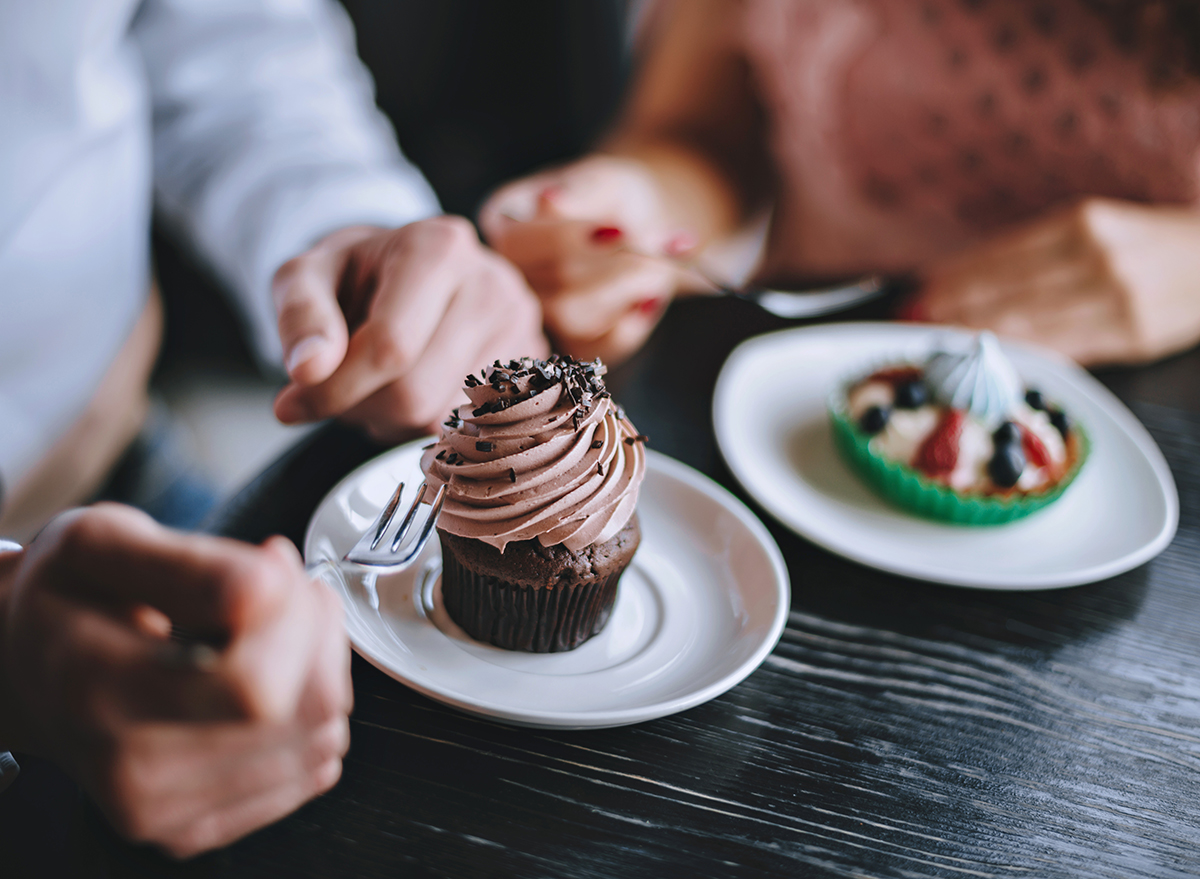
Registered dietitian Leah Kaufman, MS, RD, CDE, CDN says while people fundamentally understand they shouldn't eat a ton of sugar, they don't always realize how much is packed into their diets, disguised as a simple carb. In fact, she says Americans consume the most amount of carbs in the form of sugar, causing tooth decay, harmful cholesterol levels, and more. By swapping out the simple for the complex, we decrease our risk level of these conditions—and the numerous added sugars in our meal.
You will decrease inflammation.
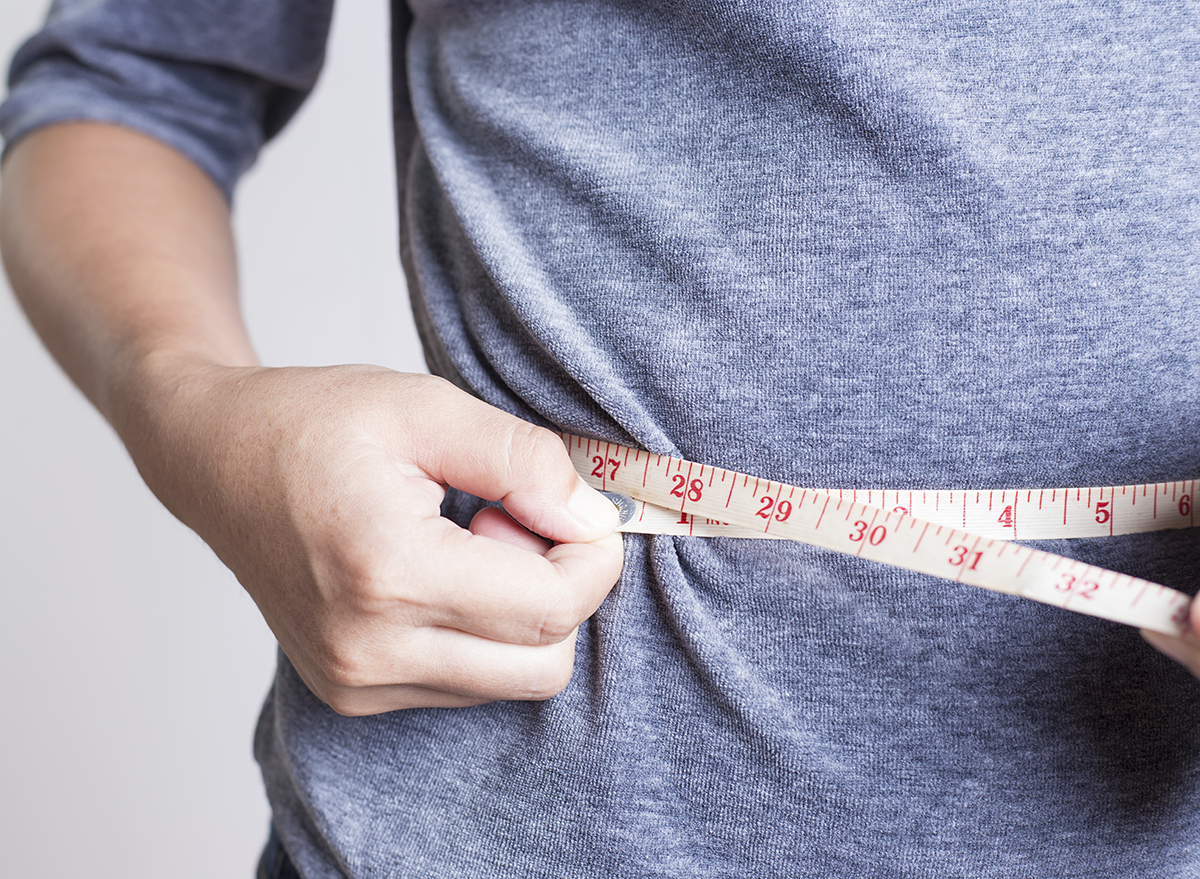
If you have an important photo shoot or big celebration coming up soon, prepare a week ahead by slimming on the carbs. How come? Fewer simple carbs result in less inflammation in our face and bodies.
"Processed, carbohydrate-rich foods are often filled with added sugars and industrial seed oils, like canola, soybean, and corn oil, which create high levels of inflammation in the body," McAlister says. "By avoiding these processed foods as much as possible, you'll reduce inflammation."
Not only does this fight against the bloat, but McAlister says it also creates a better immune function and reduced likelihood of developing obesity, diabetes, and heart disease. Here are Instant Ways to Reduce Your Inflammation, According to a Doctor.
